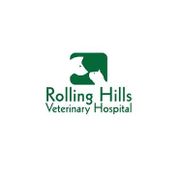Celebrate National Senior Pet Month This November

Your pet quickly becomes an important member of your family. From getting the proper nutrition to visiting the veterinarian for checkups, you do everything you can to ensure your pet is healthy. However, as your furry friend begins to get older, you may come across different types of illnesses and care requirements change. This November, celebrate your aging family companion during National Senior Pet Month.
When Do Pets Qualify as Senior Animals?
Determining when your dog or cat becomes a senior isn’t as simple as just reaching a certain age. For example, larger dog breeds, like Great Danes, have a life expectancy of eight to 10 years of age, meaning they could reach senior status as early as six or seven. However, a Chihuahua, on the other hand, can live up to 20 years of age, meaning they might not qualify as a senior animal until 17 or 18 years old.
 Veterinarians typically use several variants to determine whether your cat or dog is in their senior years, including age, behaviors, overall wellness, and activity level. If you notice excessive lethargy or a reduction in appetite or activity in your pet, schedule an appointment with your veterinarian to have their general well-being assessed.
Veterinarians typically use several variants to determine whether your cat or dog is in their senior years, including age, behaviors, overall wellness, and activity level. If you notice excessive lethargy or a reduction in appetite or activity in your pet, schedule an appointment with your veterinarian to have their general well-being assessed.
Caring for Your Senior Pet
As your pet ages, there are some conditions you should look out for because they are more prevalent in senior animals. Dental disease often impacts aging animals and can lead to pain and deterioration of the teeth, making it difficult for them to eat properly. In regard to their bodily systems, a senior dog or cat is more likely to have problems with their livers and kidneys. Many of these issues can be diagnosed and either treated or managed by your veterinarian.
The most important part of caring for a senior animal is ensuring they are comfortable and still have a positive quality of life. Make sure your pet is still getting plenty of food, water, rest, and light exercise when possible. If you notice any behavioral changes in your animal, schedule a visit with your veterinarian as soon as possible to have their health properly assessed.
For superior health care services for your family pet, trust the veterinarians at Rolling Hill Veterinary Hospital in Columbia, MO. Whether your four-legged companion is reaching their senior years and you need tips on how to best care for them or you’re simply looking for preventative health services for your animal, the professionals at Rolling Hill Veterinary Hospital have the expertise and equipment needed to treat your furry friend. To learn more about National Senior Pet Month or how to properly care for your animal, visit them online or call (573) 449-7387.
About the Business
Have a question? Ask the experts!
Send your question

